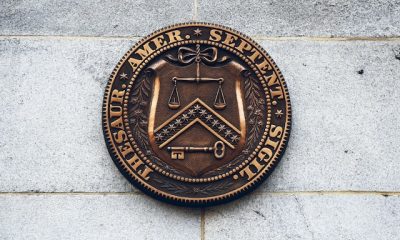Business
University of Adelaide to lead research consortium to improve South Australia’s copper production
The consortium will tackle issues that hound copper production, and exports.

The University of Adelaide has been chosen to spearhead a research consortium that will work on the advancement of technology to ramp up the production of copper in the state of South Australia.
The state used to export copper and copper concentrates that go over AU$2 billion from 2014 to 2015. This worth placed the metal as the state’s single largest export item. According to Mining.com, the government of South Australia wants to increase its copper production with a target of one million tons per year in mind by 2030. The establishment and investment to the consortium are part of the government’s actions to reach that goal.
The consortium, named Unlocking Complex Resources Through Lean Processing, has a fund of AU$14.6 million or $12 million and consists of various mining companies, government bodies and equipment manufacturers like BHP, South Australia’s Chamber of Mines and Boart Longyear. The mining companies and other research partners will provide the AU$10.14 million, while the University of Adelaide will supply the AU$4.46 million to invest in the consortium.
The Advertiser reported that this consortium will also help South Australia become a key figure in the technology of mining equipment. It also wrote that instead of proactively looking for ways to enhance the mining processes, the consortium will mainly react and resolve issues in the field.
Kyam Maher, the Science and Information Economy Minister, said that the research consortium would be a great help to mining companies when it comes to increasing productivity, removing unessential expenses, and dealing with machines breaking down or malfunctioning. The technology the consortium will develop will also play a significant part in helping mining companies in attending to these matters.
University of Adelaide’s Institute for Mineral and Energy Resources Director Stephen Grano will become the research consortium’s director. Grano stated that there are a lot of copper resources in South Australia that are untouched and are worth more than $800 billion.

A mining consortium among the University of Adelaide and various mining companies are expected to boost copper production. (Featured image by Reinhard Jahn, Mannheim via Wikimedia Commons. CC BY-SA 2.0 de)
He also said that the state’s economy can benefit from the possibility of copper resources being exploited commercially more often. Factors like hindrances in operating expenses because of the complicated terrain near the deposits should also be addressed, according to Grano. The processing of copper ores also is a taxing method as high amounts of energy, money, and water are needed to perform this procedure. There is also the fact that minerals are entwined with each other, which makes the process of mining copper ores more complicated.
University of Adelaide Deputy Vice-Chancellor Julie Owens said that the consortium aims to handle the problems mentioned and the opportunities leading to a more maintainable mining that does not affect the environment negatively. It also seeks to make a profit out of technological advancements that can emerge from the consortium to help global markets as well.
Additionally, Gizmodo Australia reported that the consortium will benefit from the collaboration and individual strengths of mining companies and other partners involved. Their cooperation will lead to a fruitful and efficient endeavor in introducing new technology to the mining processes, which can lead to the maximization of using South Australia’s mineral resources.

-

 Biotech2 weeks ago
Biotech2 weeks agoEcnoglutide Shows Promise as Next-Generation Obesity Treatment
-

 Business14 hours ago
Business14 hours agoThe TopRanked.io Weekly Digest: What’s Hot in Affiliate Marketing [uMobix Affiliate Program Review]
-

 Business1 week ago
Business1 week agoThe TopRanked.io Weekly Digest: What’s Hot in Affiliate Marketing [PureVPN Affiliates Review]
-

 Crowdfunding3 days ago
Crowdfunding3 days agoPMG Empowers Italian SMEs with Performance Marketing and Investor-Friendly Crowdfunding

























You must be logged in to post a comment Login